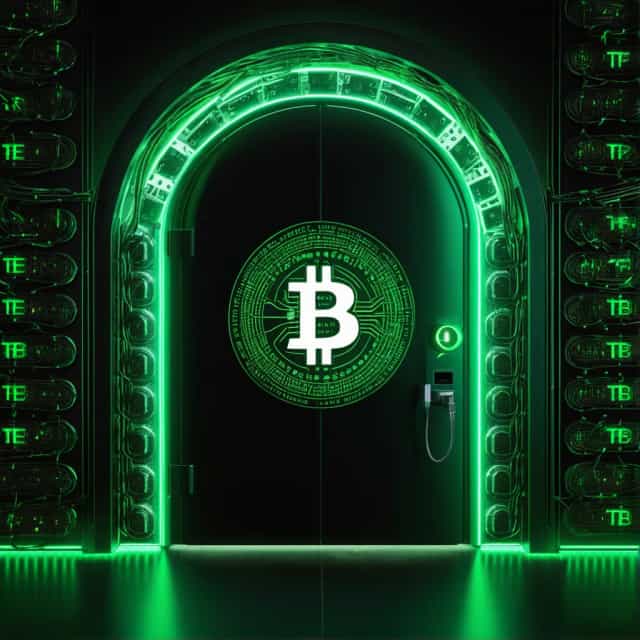!["Affordable Premium Domains for $1: Fred Xu on the Future of Internet Real Estate [D3 CEO Interview]"](/_next/image?url=https%3A%2F%2Fwww.blockmedia.co.kr%2Fwp-content%2Fuploads%2F2025%2F10%2F20251001-100846-e1759371378403.png%3Fformat%3Dwebp%26width%3D600&w=1200&q=70)
Image source: Block Media
Revolutionizing Digital Ownership: How D3 and the Doma Protocol are Transforming Internet Domains
A groundbreaking venture seeks to bring the lucrative realm of premium internet domains—valued at tens of millions—into the blockchain era, turning them into tradable, accessible assets. Fred Hsu, co-founder and CEO of the innovative domain tokenization protocol D3, has drawn parallels between these domains and "Gangnam skyscrapers" in the digital world. This ambitious project leverages blockchain technology to fractionalize ownership of domain assets, creating new financial opportunities and opening the door for everyday investors.
In an exclusive interview, Hsu detailed how the proprietary Doma Protocol aims to revolutionize the domain market by blending its 35-year-old asset class with cutting-edge blockchain capabilities. This merger promises not only to streamline the complex processes of buying and selling domain names but also to democratize access to these historically exclusive assets.
Streamlining Domain Ownership with Blockchain
The Doma Protocol uses ERC-20 token technology to fractionalize ownership in premium domain names, such as "chat.com" and "hi.com." This integration transforms such assets into tradable, blockchain-based entities known as domain tokens.
Traditionally, buying or selling high-value domains required lengthy transaction times, legal documentation, and significant capital. Hsu explains that with the Doma Protocol, investors can take part in ownership for as little as $1 or $5, fundamentally changing the dynamics of domain ownership. "This innovation ushers in the 'internet trading era,'" Hsu remarked, referencing the pivotal shift towards decentralized investment in digital real estate.
The Vision Behind D3 and the Birth of DomainFi
Fred Hsu brings decades of experience, having managed over 40 million .com domains and overseen landmark transactions involving iconic domain names like "chat.com" and "ai.com." This deep expertise laid the foundation for D3’s creation, with the Doma Protocol as its flagship mechanism for tokenizing domain ownership.
Hsu envisions a future where "DomainFi" becomes a recognized pillar of decentralized finance (DeFi). By applying DeFi principles to digital domains, these assets will not only be fractionalized but also capable of being rented, sold, or even leveraged for liquidity or loans. For example, high-value domains such as "insurance.com" could serve as collateral in financial transactions, much like prime real estate.
Addressing Regulatory Challenges Within Domain Tokenization
The integration of blockchain technology into domain ownership brings about unique regulatory challenges. One key issue involves anti-cybersquatting laws, which prevent predatory misuse of trademarks. The Doma Protocol addresses these obstacles through a permissioned blockchain model, ensuring compliance with such regulations.
Hsu emphasized that the protocol contains safeguards to prevent abuse; for instance, trademark infringement attempts, such as registering domains like "amazon-crypto.com," are automatically invalidated. This approach ensures that Doma operates within existing legal frameworks while offering unparalleled domain investment opportunities.
Democratizing Ownership: The Impact of Domain Token Fractionalization
The principal innovation of Doma Protocol lies in democratizing access to high-value domains, a market that has historically catered to an elite few. Fractionalization makes it possible for millions of micro-investors to own a share of a premium domain.
Token holders can access a range of benefits beyond financial returns. For instance, investors in "hi.com" tokens can create personalized email addresses like "john@hi.com" or use subdomains for websites and digital wallets. "For the first time, people can buy and sell pieces of the internet itself," Hsu stated, emphasizing the tangible utility that tokenized ownership provides.
Understanding Domain Tokens and Their Functionality
Unlike non-fungible tokens (NFTs), Doma Protocol utilizes fungible ERC-20 tokens to represent fractions of domain ownership. Each tokenholder’s rights are proportional to the number of tokens they own.
Purchasing domain tokens grants several privileges, including control over the domain, subdomain creation, and functionality like custom email addresses. This utility-first approach stands as a key differentiator in the burgeoning blockchain-based ownership ecosystem. To facilitate domain token sales, D3 introduced "Mizu," a dedicated launchpad where investors can acquire tokens for premium domains such as "chat.com" and "ai.com."
Mainnet Features Enabling DeFi-Like Ecosystems
The Doma Protocol mainnet expands domain utility by enabling collateralization, fractional trading, and much more. Domain owners can use their assets to secure loans, while individual users gain access to fragmented investments previously out of reach. To support this ecosystem, additional features such as escrow services, NFT marketplaces, and domain registration agencies are integrated into the protocol.
Looking forward, D3 is positioning itself as a key player in the rollout of new top-level domains (gTLDs) in 2026, as anticipated by ICANN. Partnerships with Web3 ecosystems like Solana and Avalanche further enhance the scalability and utility of the protocol, with new domain extensions, such as ".ape," set to enter the market.
Unlocking the "Digital Real Estate" Opportunity for Investors
Hsu likens premium domains to "online real estate," highlighting their long-term value as digital assets. Fractionalization offers an unprecedented opportunity for average investors to access properties like "chat.com" or "insurance.com," starting with minimal investments.
For regions like South Korea, where real estate is a highly valued investment class, Doma Protocol provides blockchain-based access to similar—but entirely online—assets. By enabling a wider range of participants to benefit from premium domains, the platform aims to redefine how digital ownership is perceived and traded.
Pioneering a New Age of Digital Ownership
The Doma Protocol represents a significant evolution in how internet domains are managed, valued, and traded. By combining traditional assets with blockchain technology, D3 is unlocking new possibilities within decentralized finance and digital ownership. From simplifying complex transactions to enabling fractionalized investments, this innovative approach ensures that premium domains—previously attainable only by an exclusive few—are now accessible to all.
D3’s transformative vision not only amplifies the financial potential for the digital generation but also sets the stage for an entirely new chapter in Internet-driven investment models. The blockchain era has arrived, and with it, the power to own a piece of the internet itself.










